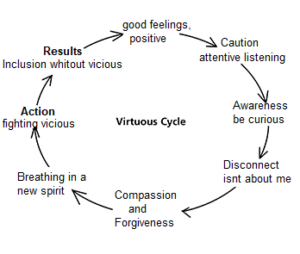
Nationalism, fear and war
It’s not the first time in history that fear has taken hold of society, various mental illnesses such as depression and panic disorder have appeared, and societies seem to be closing in on each other, much to everyone’s surprise. Germany, always so far ahead, has seen the advance of the AfD (Alternative for Germany), which is the return of the ultra-right.
taken hold of society, various mental illnesses such as depression and panic disorder have appeared, and societies seem to be closing in on each other, much to everyone’s surprise. Germany, always so far ahead, has seen the advance of the AfD (Alternative for Germany), which is the return of the ultra-right.
The problem of immigration in Germany has now come to the fore, under the protest slogan “we are the cordon sanitaire”, when it happened an anti-immigration motion and a narrow vote on the Migration Flow Act, criticized the candidate for German Federal Chancellor, Friedrich Merz, of the Christian Democratic Union (CDU), led to demonstrations across the country.
The candidate is the front-runner to take over the German government in the February 23 election, although he is conservative and distances himself from the AfD’s ultra-conservative pretensions.
The significance of these movements, laws and the growth of increasingly conservative positions is a reaction to the sense of the crumbling of the civilizational roots of the various societies and a growing movement of moral and political deterioration of social institutions.
This is not a comfort zone, but a “safety zone” in the face of the ever-present threat of an unprecedented civilizational crisis, and without an element of peace and hope that can mitigate these processes of unrestrained changes in customs.
Fear is when the moral reserves of hope and faith in the future shrink, both on a personal and social level. Young people who prefer to shut themselves away and stay “hidden” at home are a reflection of this “safety zone”, while those who go out abandon any limits.
In addition to combating extremism, the forces of peace must also sow peace and hope and reduce frontal attacks on extremism, which only strengthen it.
Not being afraid is also an important ingredient in these “battles”, showing serenity and calmness in the face of adverse situations helps to minimize the effects of intimidation and harassment that characterize extremist forces, they feed on fear and violence.
The true nuclei of hope are inclusive, they are not motivated by provocations or narratives that defend their positions as the only true ones, it is not about relativism, but about enlightenment and deactivating the fear that characterizes the most closed societies.
Only peace between peoples can guarantee the hope of a healthier and more fraternal world for all.
Provisional peace in Israel and difficult in Ukraine
They continue in the footsteps of the Hamas/Israel agreement, on Thursday (01/30), 8 hostages were released, 3 Israelis and 5 Thais, in exchange for 110 Palestinian prisoners. Hamas will release the list of the total number of hostages, but Israel continues to attack Hezbollah positions in Lebanon.
Hamas/Israel agreement, on Thursday (01/30), 8 hostages were released, 3 Israelis and 5 Thais, in exchange for 110 Palestinian prisoners. Hamas will release the list of the total number of hostages, but Israel continues to attack Hezbollah positions in Lebanon.
The press has released few details about peace in Ukraine. It is known that there are movements behind the scenes, and that part of the agreement would be the return of Russian gas to Europe, after penalizing the Russian economy with sanctions, and the supply of gas is one of them, with the recent blockade of the passage of Russian gas through the war territory.
Keith Kellogg, Trump’s envoy to negotiate peace between Ukraine and Russia, said in an interview on Friday (01/31) that the end of the war could happen in months.
There, the tactic has been to bomb Russian refineries inside Russian territory, while Russia destroys Ukraine’s energy sources, remembering that gas is also used in Europe for heating and we are in the middle of winter.
On the diplomatic front, Russia maintains influence in neighboring countries such as Georgia, Serbia (not without protests) and unstable Bulgaria. According to former EU Commissioner Mariya Gabriel, due to corruption, she should have been prime minister, but Dimitar Glavchev took over as interim.
It is unlikely that an agreement will be possible without Ukraine ceding part of its territory to Russia, and the hidden issue in the agreements is the growing provocations, now with Russian ships carrying atomic cargo approaching Norway (photo), which is a NATO member. Although the ship has maintained maritime rules, there is suspicion about its true functions, such as placing equipment that can cut maritime communication cables on the ocean floor.
There are behind-the-scenes conversations; the Trump administration is committed to achieving peace while at the same time continuing to send ammunition to Ukraine, which has begun to attack Russian territory and made the war more intense and escalating.
In last week’s posts, we highlighted the functions of language, and it is no longer neutral language; even international mediating forces are forced to make decisions between the parties in dispute; voices for true peace are muffled in the name of partial narratives.
Language and evil
Human language is as complex as man himself, so without a vision of Being in its complexity (it is onto-logical) and without an accurate understanding of linguistic functions (see previous post) we make the mistake of understanding that the logic coming from media and devices overrides human logic and can “control” reality.
so without a vision of Being in its complexity (it is onto-logical) and without an accurate understanding of linguistic functions (see previous post) we make the mistake of understanding that the logic coming from media and devices overrides human logic and can “control” reality.
Wittgenstein, in his Tractatus Logico-Philosophicus, reinforces the idea that: “language is a garment that disguises thought. And indeed in such a way that one cannot infer from the outer form of the garment the form of the thought clothed in it, because the outer form of the garment has been constituted for purposes entirely different from making the form of the body recognizable” (Wittgenstein, proposition 4002).
This is also true of metalanguage, where the digital media is the garment (not the network, because it is a network of relationships), it is dressed up to omit the purposes for which many people use it, but the problem is not only socio-political, it is also moral and ethical.
This omission in language allows linguistic acts to be carried out with absolute immorality despite “freedom”; it is much more than a simple expression in “clothing”; it is a way of corrupting and destroying core values of the civilizing process.
Separating what is good from what is evil based on the garment is also a tricky task, as one cannot make common mistakes: preventing free expression, discerning the intentions hidden in the “garment” and, above all, to discern the intentions hidden in the “garment” and above all to defend the “foundations” of truth.
Truth is ontological and does not follow common logic, it aims to respect the being, their dignity as a person, the right to basic freedoms and especially the right to life, today under a rather confusing “garb” of rights to death, where war and exclusion are the main ones.
Language itself, as an everyday expression of communication, is being abused and deteriorated more and more every day, to the point of making it difficult to even achieve what was already the achievement of millennia of civilization: communication between two people and in narrative´s time the evil is more present in bad communication.
You can’t separate the evil that lies under the guise of “words” and linguistic use, without paying attention to structural truths that date back millennia in the civilization process: the right to Be (life), the right to freely express one’s ideas and principles, the right to come and go and the right to make choices that don’t harm these rights of each Other.
You don’t get good from evil, and what is present in language must be purified.
Wittgenstein, Ludwig. (2023) Tractatus Logico-Philosophicus. Brazil: Criciúma, SC: Editora Convivium, 1ª. edição eletrônica.
Language functions and A.I.
The functions of language have returned to the discussion due to the structural changes caused by the new media, and it is necessary to separate them didactically to avoid incorrect appropriation of their use in communication, so we have the functions: conative, metalinguistic, phatic, poetic and referential, this classification is due to “Roman Jakobson”, but it is necessary to update it now with the use of A.I. (Artificial Intelligence).
to the discussion due to the structural changes caused by the new media, and it is necessary to separate them didactically to avoid incorrect appropriation of their use in communication, so we have the functions: conative, metalinguistic, phatic, poetic and referential, this classification is due to “Roman Jakobson”, but it is necessary to update it now with the use of A.I. (Artificial Intelligence).
Only the referential function can be understood as the direct function of information, which is present in scientific and didactic texts, with a predominance of direct speech and a focus on the third person with the use of objectivity.
Only in metalinguistics are codes present, so it is only in this function that you can have a sender and receiver, because it essentially depends on a message being coded, that is, as the author of the classification says: “it is the one in which the code explains the code itself, that is, the language explains the language itself” (Jakobson, 2008), but the sender, who is the one who codes, and the receiver, who is the one who decodes, should only be here and not in the other linguistic functions.
So the language of language can be traffic codes, the most diverse legislation, but dictionaries and other tables of synonyms for everyday language shouldn’t be included in these lists, while Morse code and digital codes (ASCII and digital transmission itself, for example) are today the most obvious characteristics of metalanguage, but the transmitter and receiver are still human, except in the case of robots (softbots) and A.I.
So the linguistic framework proposed by Jakobson must be updated and revised, and A.I. has an ethical and civilizational problem in that for the first time in history a code (which is confused with the sender when sending a message) can be non-human.
A.I. corrections have the ethical issue that they can be mistaken for a human sender, and it is necessary to differentiate between them, and the civilizational issue of cooperating with the creation of narratives, but it must be stressed that they predate the use of new media.
Transmitting civilizing messages, whether cultural, religious or social (political in a broader sense), has become a problem due to the impoverishment of language, the abusive use of rhetorical simplifications of truths that must be analyzed in context and without ideological manipulations.
JAKOBSON, R. (2008) Linguística e comunicação. 23.ed. Brazil, São Paulo: Cultrix.
Narrative, language and communication
Korean-German philosopher Byung-Chul Han says: “Today we live in a post-narrative time. Not narrative [Erzählung], but counting [Zählung] determines our lives.” (Han, 2023, p. 48).
says: “Today we live in a post-narrative time. Not narrative [Erzählung], but counting [Zählung] determines our lives.” (Han, 2023, p. 48).
To better understand this sentence, just for didactic purposes we have categorized the literary genre into 3: narrative or epic, lyrical and dramatic, the narrative is linked to the “telling” (zählung) of a story and therefore not should be confused with the actual narratives (Erzählung, in German), see that they are differentiated by the prefix “Er”, so the telling must have a narrator, a plot, the characters in time and space, that is, in a context.
Lyric is also a genre that refers to texts with subjectivity and connotations, they can be in prose or verse, but they are also a different type of storytelling from modern narratives, many authors complain about the lack of poetry, and Heidegger pointed out that this is another function of language.
The dramatic text is also a genre in which acts, scenes, rubrics and lines are presented, so it is part of a theatrical form or a-presentation, in the sense that the presentation is both a telling of a story and its negation, since it involves fiction.
The dispute between nominalists and realists in the lower middle ages (11th to 14th centuries) ended up neglecting the importance of language, but the linguistic turn of the late 19th century brought its importance back to the forefront.
The beginning of modernity is marked by the rupture between the metaphysical function of language and the use of objectivity as a mode of expression, but this is only one of the functions of language. The Russian linguist Roman Jacobson recalls the functions: phatic, poetic, conative and metalinguistic, in which modern codes are inserted, for example: Morse, digital and quantum, where “the code explains the code itself, that is, the language explains the language itself”, and this must be the only context where the concepts of sender/receiver apply.
The linguistic turn occurs in the midst of the crisis of idealist and positivist thinking in modernity: Husserl, Heidegger, Hanna Arendt are fundamental, although they are most remembered: Noam Chomsky, Mikhail Bakhtin, Michel Foucault and Ferdinand de Saussure.
Returning to Byung-Chul Han’s initial quote: “Narrative is the capacity of the spirit to overcome the contingency of the body”, this capacity to overcome the contingency of the body is linked not only to the memory of poetic and conative language, but also to the spiritual meanings and values that modernity has abandoned under the pretext of creating an “objective” vision.
The telling of the stories of peoples, their cultures and religions are thus key factors in overcoming such a dramatic moment in the history of communication, where communication itself, the fruit of millennia of evolution in human culture, seems to be in question.
Proclaiming words, stories and beliefs is a universal right, attempts to prevent these rights is not only a motivation for divisions and hatred, it is fuel for wars.
Society in bubbles
The question of the Other has arisen in philosophy as a result of a self-centered philosophy coming from extreme rationalism, which exploits exacerbated hedonism, utilitarianism as a way of life and economy, in a society of rights without duties, where what goes for me doesn’t go for the Other.
philosophy as a result of a self-centered philosophy coming from extreme rationalism, which exploits exacerbated hedonism, utilitarianism as a way of life and economy, in a society of rights without duties, where what goes for me doesn’t go for the Other.
Philosophical authors such as Paul Ricoeur (cited even by the Pope), Emmanuel Lévinas and Martin Buber, who comes from a Jewish philosophy, speak of this existential emergency that is the relationship with the Other, but our closed circles try to establish narrative half-truths that are only valid for our bubbles.
The essential existential question of who is the Other, Martin Buber, in The I and the Thou, comes to see the most sacred in the Other and the question is, in a way, in Peter Sloterdijk’s Spheres I, where he says that children seem to be born with a kind of “instinct for relationships”? which develops throughout the book the idea that we are not born alone and, therefore, through cooperative work and language, we should socialize, and bring out this inner instinct for the relational.
Sloterdijk rejects the liberal, idealistic principle of Cartesian origin, where the isolated individual seeks his existential reason. He starts from an ontology where the primitive is always Two, but if we include the divine that Buber saw, we are three.
But he’s not so idealistic as to say that these two are fused, we could say using Gadamer’s concept, who sees in the “hermeneutic circle”, a “fusion of horizons”, and so we can think of the individual who comes out of the placenta, which will then be dead, as coming out of their primordial bubble, and finding themselves somewhat separated from their mother.
The pre-modern world had a model, for which this separation was not total, of remaining in subjectivity or intimacy (not the interiority that does not separate), this can be seen in some peoples who planted the placenta like trees, and others, like the Egyptians who made pillows, and in the tombs of the pharaohs were buried with them, as if to remain in the initial existential bubble.
We are thus seen in the self-sufficiency of the liberal model, but this model is also criticized, for example, by Rousseau, who sought an isolated life of non-thinking, see as in the experience of the lake, in his writing of the daydreams of the solitary walker, compatible with his model of the man of the good savage, on which many modern democracies are inspired, Rousseau was the contractualist of the most liberal model.
Even the hope of regaining a “general will”, in a stronger state, where a kind of “national religion” is proclaimed, which today erupts in nationalisms all over the planet, is nothing more than a contemporary vision of a self-sufficient “bubble” of various kinds of social closure in ‘communities’, but with a selfish principle inside, what Sloterdijk calls an “inflated community”, social media are just “means” where these ideas of bubbles are propagated.
A fragile peace
Despite the ceasefire, Israel and Hamas continue to exchange accusations of violating the agreement. Meanwhile, Hamas freed four female Israeli soldiers who were being held hostage (according to the Israeli government there will be 6) on Saturday 25/01, while Israel freed 200 Palestinians, 120 of whom, according to the Israeli press, are terrorists who have beheaded civilians or carried out other atrocities.
continue to exchange accusations of violating the agreement. Meanwhile, Hamas freed four female Israeli soldiers who were being held hostage (according to the Israeli government there will be 6) on Saturday 25/01, while Israel freed 200 Palestinians, 120 of whom, according to the Israeli press, are terrorists who have beheaded civilians or carried out other atrocities.
Israel has also been withdrawing part of its army from northern Gaza, but Hamas’ accusations are still preventing Palestinians from returning to the region (photo).
Ukraine is in a similar situation, where Russian soldiers are shooting at civilians who are trying to return to their homes, thus Russia is extending its occupation in eastern Ukraine, territories close to Donesk that Russia controls and claims ownership of.
Russia, according to Putin’s statement, sees the end of the war as favorable, but the situation is fragile because Russia has recruited another 150,000 soldiers, surpassing the mark of 1 million active soldiers, which is seen as disproportionate to the war in Ukraine, which has difficulties recruiting new soldiers and has an army of around 600,000.
While Trump’s new US government is talking about an immediate end to the war in Ukraine, suspicions are growing in Europe that Russia is creating conflicts in other regions of NATO, which has no more than 90,000 active military personnel, but each country has its own national army and military budgets are increasing in almost all of Europe.
In the Second World War, it should be remembered that the US only entered the war after the Japanese attack on Pearl Harbor (September 7, 1941), 2 years after the start of the war (September 1 and 2, 1939) when Germany invaded Poland.
The deportation of illegal immigrants in the US, Trump’s campaign promise, hit a new snag when Colombia rejected the extradition of their compatriots, and generated an immediate diplomatic conflict between the two countries, with economic barriers set up by the US, which were removed in the early hours of this morning (27/01) after acceptance by the deportees.
Venezuela’s borders also continue to be militarized, including with Brazil, which is not only bad for peace, but also for democracy, because the military power is growing.
The hope for peace cannot be naïve and deny the current war panorama. We need to disarm and recover the civil rights that are under threat in every corner of the planet.
Truth and justice will meet
The encounter between truth and justice still challenges most thinkers, Hans-Georg Gadamer, in his book Truth and Method, highlights the two points that are still obstacles to this dichotomy: “The effective exemplarity that the new mechanics had and its triumph for The sciences of the 18th century, highlighted by Newton’s celestial mechanics, continued to be so evident to Helmholtz that he was far from asking what philosophical preconditions had enabled the emergence of this new science in the 18th century. XVII” (Gadamer, 1997, p. 42), and points this out as a result of the Occamist School of Paris.
challenges most thinkers, Hans-Georg Gadamer, in his book Truth and Method, highlights the two points that are still obstacles to this dichotomy: “The effective exemplarity that the new mechanics had and its triumph for The sciences of the 18th century, highlighted by Newton’s celestial mechanics, continued to be so evident to Helmholtz that he was far from asking what philosophical preconditions had enabled the emergence of this new science in the 18th century. XVII” (Gadamer, 1997, p. 42), and points this out as a result of the Occamist School of Paris.
Wiliam Ockham (1276-1347) was a Scottish monk who established the principle of “Ockham’s Razor” which says that between two explanations you should take the more and this reached the studies of the 17th and 18th centuries, and Helmholtz was the one who tried to separate the sciences of nature from their historical derivation, because this way the sciences of the spirit could be worked on.
Gadamer has the merit of unveiling (it is not the unveiling that would be reaching the Truth), when analyzing Dilthey’s historical romanticism: “with regard to this independence of the methods of the sciences of the spirit, Dilthey continues to link it to the ancient “Natura parendo vincitur” “ (Gadamer, 1997, p. 44) and thus Newtonian principles continued to prevail in the “Sciences of the Spirit” and thus the true bases of these sciences remain linked to logicism.
The meaning of the Latin term is “Nature is overcome when giving birth”, it links the natural to the supernatural, and thus ends up denying it, this was Kant’s intention (sapere audi, to dare to know) and which became enshrined in modernity by Hegel: “the real is only an aspect of the ideal”.
In idealism there is no concept of virtue (areté), but of training as a personal discipline, Wilhelm Von Humboldt corrected this: “When we, however, in our language say training, we are referring to something at the same time more intimate , that is, to the nature that comes from the knowledge and feeling of the set of spiritual and moral commitment, to spill harmoniously into sensitivity and character” (Gadamer, 1997, p. 49).
Thus, modernity abolished metaphysics, what is beyond physis (since the Greeks means nature) and the supernatural (that which is above nature, the superno natura).
Thus, in a reductionism of truth, when we seek justice we think it is correct to use half-truths (the means justify the ends) and when we say we defend the Truth, we think it is correct to suppress conditions of human and divine justice to defend it, there is a link between them Justice without Truth is mutilated, Truth without Justice is half-truth
GADAMER, H.G. (1997) Verdade e método. Trad.de Flávio Paulo Meurer. Brazil: Petrópolis, RJ: Vozes.
For a true asceticism
Peter Sloterdijk, despite being an agnostic, points out a “spiritual” defect in today’s society: it is a “society of exercises” that do not lead to a true inner “ascent”; it is a society of agitation, looking for “efficiency”, the “society of tiredness”.
points out a “spiritual” defect in today’s society: it is a “society of exercises” that do not lead to a true inner “ascent”; it is a society of agitation, looking for “efficiency”, the “society of tiredness”.
The lack of time for meditation, for exercising the mind and soul, is leading to “brainrot”, the word of the moment according to Oxford University, which has included it in the dictionary, meaning rotten brain. It’s not just a question of consuming bad information, ignorance and the lack of exercise in a “contemplative life” as Byung Chul Han calls for creates a space in the mind for this type of thinking to grow.
We create a culture that isn’t even counter-culture in the sense of civilizational evolution, it’s just something rotten, we bombard our brains with fragments of thoughts, spiritual fragments without them completing each other and forming within us a true spiritual asceticism.
It’s empty activism, and to fill it we need more narcotics and food to fill the body’s emptiness while the mind remains empty, this same emptiness that could serve to create a “contemplative life” that would support asceticism and a balance in the virtuous circle.
Chul Han also recalls painting, quoting the work of the Frenchman Paul Cézanne: “Painting means nothing more than ‘letting go of the friendship of all these things in the open air’” (Han, 2023, p. 49).
It’s not just media culture that does this, it’s the absence of structural values of virtue and morality.
The loss of culture (or what remains of it according to Antoine Daniels) is this inability to see beauty and truth.
Of course, true asceticism, in the spiritual sense, cannot fail to encounter the divine, and as for useless “exercises” to take a “bath in spirituality” only to come out empty and without encountering being, says Han: “in the deep layers of being, they are suspended” (Han, 2023, p. 49).
It’s not just media culture that does this, it’s the absence of structural values of virtue and morality.
“The landscape of inactivity,” writes Byung Chul-Han about Cézanne, ‘breaks with nature made human and restores a non-humanized order of things in which they can meet’ (Han, p. 50).
Still quoting Cézanne: “Ah! Landscape has never been painted. The human being must not be there, but must have found himself entirely in the landscape” (p. 51), the ‘noisy self’ must be ‘silenced’.
How many people participate in the “exercise society” just to laugh and get emotional, without having “entered the landscape”, without the slightest contact with the divine, needing noise, food and drink to fill the emptiness they have in their souls and not in their stomachs?
Only an exercise in true asceticism can lead us to Love, the synthesis of the virtues, but without forgetting them: it introduces us to balance, courage, listening and sincere social relationships.
HAN, B. C. Vita Contemplativa (Vita Contemplativa: or on inactivity). Trad. By Lucas Machado. Brazil. Petrópolis, RJ: Vozes, 2023.
Virtuous circles are inclusive
As we advance in the virtues, we encounter obstacles. Those who are in the vices and decadence tend to try to discourage us and show that their mistakes are right, they want our complicity in their errors, but it’s not a question of excluding them but of loving them precisely with the virtues we exercise: patience, prudence, wisdom and fortitude.
obstacles. Those who are in the vices and decadence tend to try to discourage us and show that their mistakes are right, they want our complicity in their errors, but it’s not a question of excluding them but of loving them precisely with the virtues we exercise: patience, prudence, wisdom and fortitude.
It is not inclusive to accept the offers of ease that addictions provide, it is above all to show that difficulties and the courage to face them lead to a fresh start in virtues and attitudes.
Every addiction is already inclusive. We need to reform our criticism of others, try to prove that those who forgive, help and show solidarity are wrong, because they are paralyzed in their souls and so need to feed themselves and convince themselves that their mistakes are justified.
As we said in the previous post, using Philippa Foot’s book, Love would be enough if it were well understood as the ultimate synthesis of all virtues, but this is not the case, in a culture that is in error even strong words need to be understood with all their complements, erotic love is just one aspect of Agape Love, and if misunderstood it is also a vice.
The same goes for generosity; if not viewed with caution, it can appear to be altruism and we can be feeding addictions of various kinds while trying to help, by giving alms, for example.
Love, too, which lacks fortitude (courage), finds it easier to exclude, ignore or even attack those who are different, under the illusion that this will remove them from their vices and mistakes. It’s very common in current literature to be advised to remove people with problems, mistakes and who don’t build from your life.
Exclusion generates a new addiction even if you think you’re in a virtuous circle, attitudes and behaviors that are not inclusive or tolerant.
Levels of aggression and intolerance generate many divisions and, down the line, addictions and mistakes that end up undermining a virtuous circle.
The deprivation of freedom, of fruitful dialog, of sincere listening in virtuous circles generates an even greater escalation of virtues, to the point where they seem logical and natural, without which we create bubbles in which we seem to live well, but without the empathy and resilience for social interaction.
In this way, apparently inclusive groups where people praise themselves, help each other or proclaim themselves to be pure and virtuous are actually circles of exclusion and little life, tending to wither and diminish.
True virtuous circles attract, inspire and lead many people to overcome their problems, mistakes and difficulties that are typical of life, this is a miracle that only virtues bring, the fact that values are deteriorating is that those who defend them do not practice them.

